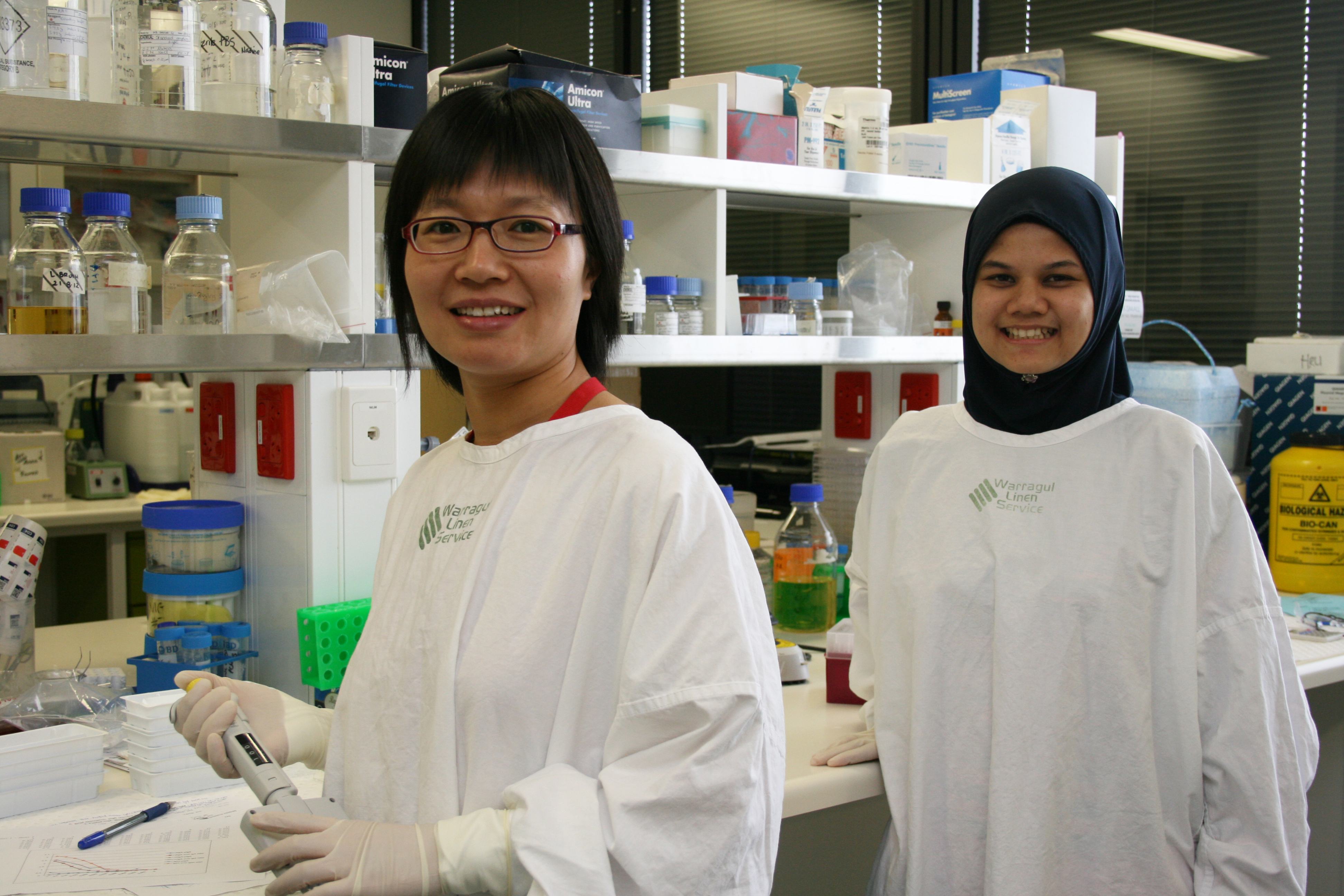IPB, a member of the Chinese Academy of Medical Sciences, is a national centre of excellence for the study of important human pathogens and is responsible for advancing knowledge and technology for better diagnosis, treatment and prevention of infectious diseases in China.
Tuberculosis (TB) is one of the world’s most pressing health concerns and China remains a high-burden country: for such a highly contagious disease, access to timely diagnosis is a critical factor in controlling spread of infection.
Point-of-care diagnostics are urgently required to ensure access to treatment, reducing both morbidity and mortality for infected individuals and reducing risk of transmission to others.
During 2013, Burnet hosted a visiting scientist from IPB at our Melbourne headquarters, and two research students from Burnet spent time at the IPB laboratory in Beijing. Together our researchers were able to test Burnet’s most promising in-house assays for tuberculosis using the samples provided by IPB.
This provided us with an increased sample size, incorporating both an independent, geographically-distinct sample population and a selection of samples from individuals during tuberculosis treatment follow-up. This is an important contribution to the shared research agenda as access to clinical samples in Australia is limited.
Our data suggests a very high probability that the Burnet’s prototype TB diagnostic test will be very useful for population-based screening to detect both symptomatic and healthy cases of active TB, and a high probability that it will be useful for diagnosing clinically unwell patients (ie distinguishing TB from other severe respiratory disease).
Either or both of these tests would have very significant public health and social benefit by helping to reduce the enormous medical burden and spread of TB infection worldwide.
The experiments conducted at IPB produced a large amount of data and provided new insights into moving forward with development of a rapid point-of-care diagnostic for TB.
Joint symposia were also held in both Melbourne and Beijing, where preliminary results from the research were presented to key stakeholders. If additional experiments are successful we will seek further funding to undertake field trials in China (and elsewhere).

Funding Partners
- Australian Government
- Australia-China Council
Partners + Collaborators
- Professor Guofeng Zhu, Institute for Pathogen Biology, Beijing, China

